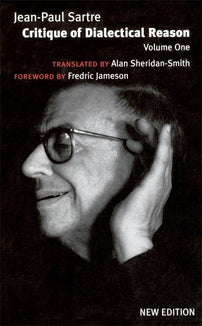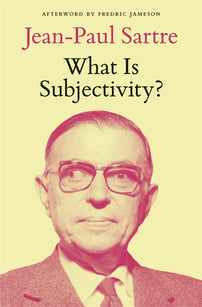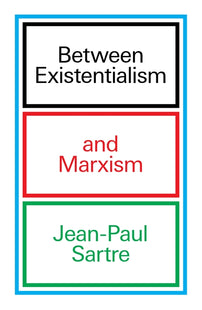Sartre’s philosophy of praxis
If the celebrated existentialist philosopher Jean-Paul Sartre is remembered today it is likely to be for his novels and fiction, or for his post-war classic Being and Nothingness. Less often discussed is his groundbreaking work of Marxist philosophy, Critique of Dialectical Reason, and the philosophy of praxis he develops in it. But, as Lorenzo Buti argues, it is in this work that his true political power lies.

Karl Marx opens his justly celebrated account of the French coup of 1851, The Eighteenth Brumaire of Louis Bonaparte, by describing the confusion of historical times produced in revolutionary episodes. It was, Marx writes, to the clothing and speech of ancient Rome that the French revolutionaries of 1789 harkened in order to glorify their struggles, while the figures of 1848-1851 could only parody the previous revolution and replay it in a reactionary mode. Then, in his famous formulation, history occurred twice: ‘the first time as tragedy, the second time as farce’.
‘The social revolution of the nineteenth century,’ Marx reminds us, ‘cannot draw its poetry from the past, it can draw that only from the future.’ Social progress could only come about when the working class becomes conscious of its inherent interests. And the name for this political maturity is the proletariat, the figure that for Marx would overturn everything bourgeois society appropriated for itself. This was the task of communist organization which, as The Communist Manifesto proclaimed, has ‘no other interest separate and apart from those of the proletariat as a whole.’
Yet, we often have an understandable desire to subject this confusion of political and historical times to a false unity and coherence. By doing so, however, we can miss those very real events happening in front of our eyes. Perhaps sometimes it makes more sense to ‘stay with the trouble’, in Donna Haraway’s admirable formulation. Were we to do that, what is it that we would see? Confusing times indeed.
As the political theorists Sandro Mezzadra and Brett Neilson have recently argued, today we are witnessing an increasing number of struggles that do not easily translate into a coherent working class politics. Rises in the cost of living are met by strikes for higher wages, but they can also trigger more diffused revolts. Mass resignations and the refusal to work under appalling conditions have dislocated entire sectors of the economy. But these struggles do not (as yet) translate into a common class politics. In Britain and elsewhere, politicians nominally representing working people often shun the language of class. When attempts have been made to do so (with Bernie Sanders in the USA and Jeremy Corbyn in the UK, for instance) it often lacks a strong organizational basis in working class communities, forcing them to unite through discourse rather than organic ties.
How are we to make sense of our confusing historical moment? Although not fashionable today, there’s much we can gain in these troubling times from studying the work of the philosopher and novelist Jean-Paul Sartre. An intellectual celebrity in the post-war years, and the author of the hugely successful Being and Nothingness, Sartre was known during in the late 1950s and early 1960s for his support of anti-colonial struggles as well as his perhaps questionable defence of the Soviet Union (a position he himself later vehemently criticized). Less known is that during this period Sartre also fundamentally revised his philosophical framework in order to make sense of the multiplicity of political movements then emerging. This philosophical reorientation culminated in the publication of Critique of Dialectical Reason in 1960, a materialist study as hermetic as it magisterial.
***
If in his existentialist period, Sartre emphasized struggle between individual subjects (‘Hell is other people’, etc), his later work includes a thorough analysis of how struggle happens in and through our relation to the material environment. Human beings are always brought together and interact in a shared social space. To a large extent, our actions (our ‘praxes’) are influenced by the specific qualities of our environment: we act because we are moved to achieve a certain goal. When we do so, we imprint ourselves in that environment. Every praxis leaves a trace in the environment that will remain after it will have left the scene.
[book-strip index="1" style="buy"]If our relations with one other are determined by that shared material world, according to Sartre, then the most fundamental characteristic is scarcity. Scarcity is the brute fact that “there is not enough for everybody.” Treating the concept in such an abstract manner is deliberate, because scarcity does not restrict itself to the sphere of biological nourishment or hunger. There can be a scarcity of literary prizes that put writers in competition with one another, a scarcity of bus seats causing fights between would-be passengers and a scarcity of raw materials that trigger skyrocketing prices.
Scarcity turns our practical behaviours towards one another into one of inescapable struggle. Sartre writes that “in the framework of scarcity, constitutive relations are fundamentally antagonistic”; we form relations with some in order to secure sufficient resources and expel others because they threaten our livelihoods. This does not mean that struggle expresses itself at all times. As political theorists like Machiavelli and Gramsci both knew, the best way for a group to dominate others is for unequal relations to materialize in solid ‘inert’ structures that make them appear natural or eternal. If the market becomes naturalized, for instance, no one can doubt its existence. Sartre will emphasize, however, that these inert structures are never sufficient to maintain stable power relations. In his terminology, ‘passive’ (or inert) structures of exploitation are always supported by ‘active’ praxes of oppression. Passive domination and active oppression work hand in hand to keep the dominated in their place. The worker is both dominated by the impersonal structures of the market and oppressed by the arbitrary power of his boss.
***
A key social condition that lies at the heart of the Critique – and perhaps Sartre’s greatest contribution to thinking contemporary politics – is seriality. This is when collectives of individuals stand in a relation to one another in such a way that they remain isolated from each other. People waiting in line at the butcher with a ticket that marks their turn are united in seriality, but so are the buyers and sellers who meet in a marketplace to buy a certain good. Another instance of seriality is the practical relations we uphold with fellow colleagues at a workplace or a factory. In these instances, we are brought together in a social environment in an atomizing way, and this imposes on us how we should act.
Within seriality, individuals are always free to act (Sartre never lets go of this existentialist commitment), but their actions are characterized by a fundamental impotence towards their environment. The classic example of serial activity is negotiating a labour contract. We freely agree to sign the contract, but in most cases we are utterly powerless to change the conditions that it stipulates. If we don’t accept, other workers standing in a serial relation to us surely will. Within this condition of isolation, we become totally dependent on the will of the employer, who are themselves serially determined by market competitors and the fluctuations of the capitalist economy. Seriality runs all the way through.
[book-strip index="2" style="buy"]This concept enables us to analyse a whole host of political phenomena. For one, seriality incentivizes us to individualize our predicament, searching for individual improvements within the existing social structures. The pervasive mentality of ‘rise and grind’ implicitly accepts the powerlessness of individuals to change structures of seriality and instead advocates for individual improvements within them. Similarly, it is not surprising that a moralistic fixation on individual behaviour becomes more prominent when the political prospects for collective action are on the decline.
That being said, this does not mean that serial actions do not produce any effects whatsoever, especially when they are imitated en masse within the serial collectivity. Many separate individual actions can bring about big changes that make it seem as if a collective action is taking place. Individuals can all, serially, decide to refuse the conditions under which they are asked to work. Doing so, as Daniel Zamora has recently argued, has significant effects within certain economic sectors but stops short of collective deliberations regarding how we work and what we produce. Perhaps the most ambiguous spectre of collective action is a riot, which Sartre in the Critique analyses as a serial activity of propagation (a riot spreads like a wild fire). Riots expresses themselves collectively, but on their own they do not have a collective plan of action to transform social conditions.
***
There is also, always, the possibility that a series of individuals can turn into a group. For Sartre, group praxis occurs when a collective of individuals come together to collectively work towards a goal. Groups have a real unity of action based on conscious and practical goals. Whereas in a state of seriality individuals are characterized by their mutual impotence to escape or contest their condition, the group expresses the power to practically intervene in a situation. A group can be born wherever a series used to dominate: it lies at the heart of every labour organization, political party, anti-colonial movement, feminist self-help organization and so on.
[book-strip index="3" style="buy"]What distinguishes an active group from a serial gathering is its practical power. Seriality established a statute of impotence between the members of the gathering. In the group, we share the same plight, and on this basis we can act together in order to achieve a shared goal. This goal was never a possibility for the members of the series, and if it did exist in the heads of some of them this could only be expressed as a frustration or a longing wish. In the group, however, this goal becomes a concrete possibility. The group acquires the power to intervene in the situation, to transform the environment in new ways. It emerges as a political actor in a terrain of struggle.
From this point, a complex but crucial interaction between a group and the series from which it has sprung takes place. At first, the series presents itself in the form of a danger for the group. As any activist knows all too well, the primary danger for any new political initiative is to survive beyond its first enthusiasm, else it dissolves back to a serial gathering of separated individuals. Sartre shows that this necessity for the group to survive leads it to form an internal organization with set rules and a practical division of roles. Within small groups, this takes the form of simple divisions, where one person is responsible for leafletting, another for managing social media accounts and a third for finances. But groups can grow indefinitely, until the internal organization becomes so elaborate and fixed that they lose their initial purpose and become skeletons without a soul. This is for instance how Sartre analyses the bureaucratization of the French reformist trade union institutions in the post-war period.
At the same time, Sartre emphasizes how the broader series also sustains the group by remaining a permanent source of energy for it. The conditions of exploitation or oppression that continue to occur within the serial collective of the subjugated provides material for renewed group initiatives. Certain new events can prompt individuals to join an existing group, or to establish their own groups. New developments within the series can become the source for new campaigns, strikes or actions with which the group aims to further its own cause. The group thus perpetually scans the series in search of material with which it can further its cause. The negative image of this phenomenon is the group’s betrayal of the series, when the group members use the group to satisfy their own personal interests by cutting their ties with the broader serial collective. Indeed, manipulating the link between the group and the impotent serial collective becomes of key strategic importance in any struggle between hostile praxes.
***
When a subordinate group acts politically, it attempts to make lasting changes to an environment that others have an interest in maintaining. As a consequence, it is bound to elicit a powerful response from a hostile opponent. A strategic struggle then starts to unfold where both groups formulate strategies to obtain certain goals, outwit their opponent and transform the shared social field in a favourable way. It can for instance become clear that a group should operate on certain crucial strategic terrains, form alliances with other specific groups, appeal to certain sectors of the population, build adequate resources to repel threats etc.
Importantly, this struggle takes place in a shared social field. This means that the objects that populate it will bear the trace of this conflict. As one praxis invents something that furthers its own cause, his antagonist can work on the same product in an attempt to undermine its effectiveness. Sartre calls these products of mutually opposing praxes “anti-labour”, a form of negative collaboration which produces an object which neither praxis intended, but which bears the mark of each of them.
[book-strip index="4" style="buy"]Sartre’s main example of this type of “anti-labour” is the establishment of “National Workshops” in France in 1848 during the revolutionary period of the short-lived Second Republic. In order to provide unemployed workers with jobs, a member of the provisional government devised plans for the establishment of National Workshops. However, during the course of its realization the plan was diluted, diverted and undermined by hostile interests to such an extent that when it finally came into being it could only be “a monstrous and deformed reflection of a project that had itself preserved only a confused signification.” The failure of the National Workshops contributed to the June uprisings of 1848. What we see here is that within the political struggle social objects are often not the transparent intentions of a single actor but are overdetermined by the struggle itself, which gives them a compromised and ambiguous meaning. In effect, in the struggle between hostile praxes, objects with a clear meaning are rather uncommon. Instead, the unpredictable struggle will continually produce outcomes that neither actor originally intended.
Sartre himself believed that history would gradually bring together political struggles all over the world in a common awareness of being a class struggle against scarcity. In the end, he never achieved his goal of proving this. Instead, he provided a unique vision of politics: fleeting mass mobilizations of different colours that arise and dissolve like dust in the wind, individual responses to collective problems, political initiatives that are doomed before the magnitude of their objective task, groups without a base in a series, series without the strength of a group. All these phenomena coming together and mingling in unpredictable ways, without any actor ever losing the sense of purpose for which they engaged politically in the first place. And is this not reminiscent of our contemporary condition?
Lorenzo Buti is a PhD student in political philosophy at KU Leuven, Belgium.



